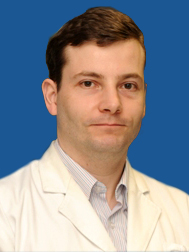 |
Dr. Philip J. ShawTitle: A molecular biologist's view of Bioinformatics: the tools we use and the tools we will need.
|
Main Presenter: (the professional and teaching experience of this person will be critical in the selection process)
- Title: Dr
- Full name: Philip J. Shaw
- Affiliation:BIOTEC, Thailand
- Mailing address: Thailand Science Park, 113 Paholyothin Road, Klong 1, Klong Luang, Pathumthani 12120
- Email address: philip@biotec.or.th
- Tel.: +66 2 564 6700 x. 3487
- Fax: +66 2 564 6707
- Home page: http://www.biotec.or.th
- Teaching Experience:
- Supervisor for BSc and PhD research projects
- Guest Lecturer SIT, University of Technology Thonburi, Thailand
- Earlier tutorial presentations:
- none
Abstract:
Molecular biology is the "engine room" for bioinformatics, generating data from diverse experiments, such as expression microarrays, SNP microarrays, proteomics, flow cytometry, to name but a few. In addition to spending much of their time performing these experiments, molecular biologists need to analyse the data using bioinformatics. Data analysis is becoming more of a bottleneck for molecular biologists, who lack the computational and mathematical skills to perform this task effectively. Collaborative projects are now becoming fashionable, where molecular biologists turn over the analytical duties to full-time bioinformaticians. One downside of this specialization is that molecular biologists are not aware of the pitfalls of the algorithms used, and analytical flaws may be missed leading to erroneous conclusions of the data. The tutorial will highlight the speaker's experience as a molecular biologist who uses bioinformatic tools. From the material presented, it is hoped that bioinformaticians will appreciate the need for their specialization, but will also learn what tools need to be developed, who the target users are, and how to communicate with the molecular biologists to ensure that the tools are used correctly.
Requirements:
An introductory knowledge of general bio-informatics and life sciences, especially suited for those working with expression data.Tutorial Outline:
- Total time: 1 hour
- Introduction (15 mins)
- Bioinformatic tools used by molecular biologists
- The problems encountered by molecular biologists who use bioinformatic tools
- Data (30 mins)
- Specific examples of malaria microarray data
- Erroneous conclusions from microarray data
- Questions and public forum: the molecular biologist/bioinformatician divide: Where do we draw the line and how much do they overlap? (15 mins)